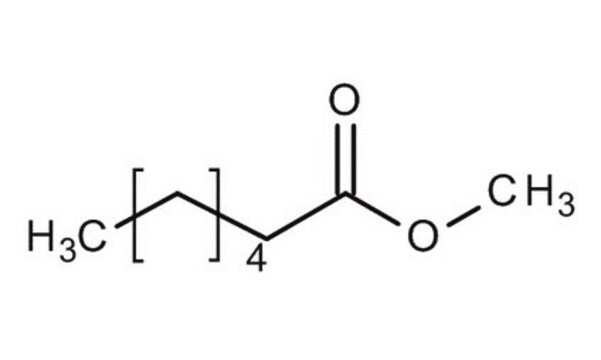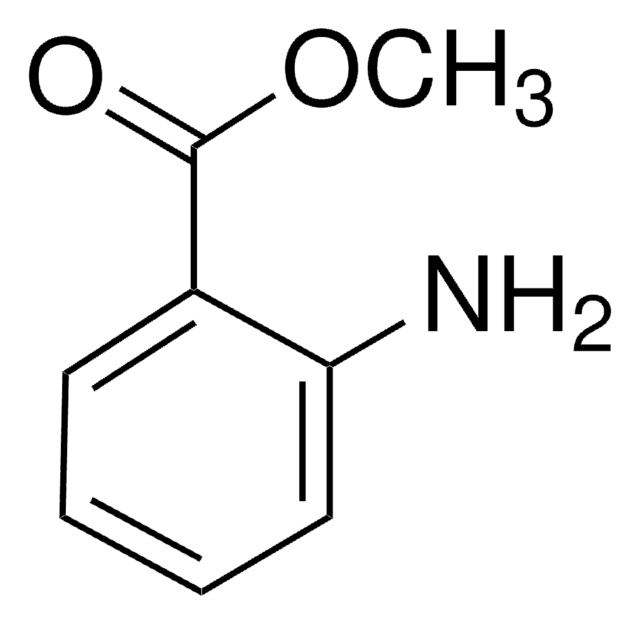W243728
Ethyl heptanoate
natural, ≥98%, FG
Synonym(s):
Ethyl enanthate
About This Item
Fragrance grade
Kosher
natural
meets purity specifications of JECFA
Recommended Products
grade
FG
Fragrance grade
Kosher
natural
Quality Level
Agency
follows IFRA guidelines
meets purity specifications of JECFA
reg. compliance
EU Regulation 1223/2009
EU Regulation 1334/2008 & 178/2002
FDA 21 CFR 117
Assay
≥98%
greener alternative product characteristics
Less Hazardous Chemical Syntheses
Use of Renewable Feedstocks
Learn more about the Principles of Green Chemistry.
sustainability
Greener Alternative Product
refractive index
n20/D 1.412 (lit.)
bp
188-189 °C (lit.)
mp
−66 °C (lit.)
density
0.87 g/mL at 25 °C (lit.)
application(s)
flavors and fragrances
Documentation
see Safety & Documentation for available documents
food allergen
no known allergens
fragrance allergen
no known allergens
greener alternative category
Organoleptic
melon; fruity; pineapple; rum
SMILES string
CCCCCCC(=O)OCC
InChI
1S/C9H18O2/c1-3-5-6-7-8-9(10)11-4-2/h3-8H2,1-2H3
InChI key
TVQGDYNRXLTQAP-UHFFFAOYSA-N
Looking for similar products? Visit Product Comparison Guide
General description
Storage Class Code
10 - Combustible liquids
WGK
WGK 3
Flash Point(F)
165.2 °F - closed cup
Flash Point(C)
74 °C - closed cup
Personal Protective Equipment
Regulatory Listings
Regulatory Listings are mainly provided for chemical products. Only limited information can be provided here for non-chemical products. No entry means none of the components are listed. It is the user’s obligation to ensure the safe and legal use of the product.
FSL
Group 4: Flammable liquids
Type 3 petroleums
Hazardous rank III
Water insoluble liquid
JAN Code
W243728-1KG:
W243728-4KG-K:
W243728-100G:
W243728-BULK-K:
W243728-SAMPLE:
W243728-SAMPLE-K:
W243728-4KG:
W243728-1KG-K:
W243728-VAR-K:
W243728-100G-K:
Choose from one of the most recent versions:
Already Own This Product?
Find documentation for the products that you have recently purchased in the Document Library.
Our team of scientists has experience in all areas of research including Life Science, Material Science, Chemical Synthesis, Chromatography, Analytical and many others.
Contact Technical Service






